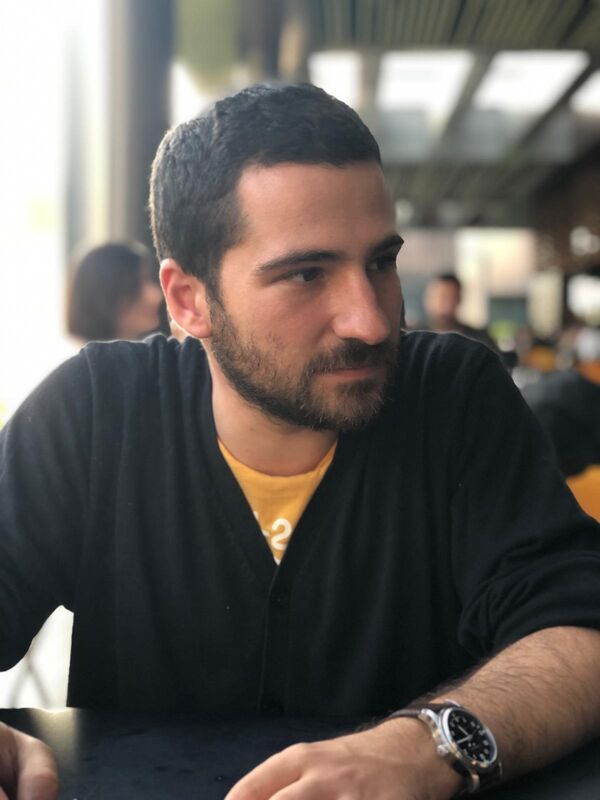What does a Bioinformatics Engineer do?
By Ege Ulgen onIn this series, we explore some important roles in the life sciences, and how their work impacts patients and families.
In this blog, Ege Ulgen shares his experience working as a Bioinformatics Engineer at Genomics England.
Bioinformatics engineers apply computational tools and techniques to improve how we manage, analyse and interpret clinical or biological data.
My role at Genomics England
I’m a Bioinformatics Engineer on the Cancer Short Reads (CSR) team at Genomics England. Our role is to develop and maintain the CSR pipeline, which detects genetic changes in patients with cancer and prioritises germline (inherited) and somatic (acquired) variants to help with diagnosis, prognosis, and treatment decisions.
My role focuses on improving the pipeline’s clinical relevance by adding new features to it. This involves writing efficient, well-documented code to keep it maintainable, ensuring my colleagues (now and in the future) can easily build upon it. Rigorous testing is a key part of my job, to make sure that any changes work as expected and won’t introduce errors.
It’s a dynamic and rewarding role, combining coding, problem-solving, and teamwork, all with the goal of improving outcomes for those affected by cancer.
What led me to bioinformatics engineering?

I studied Medicine at Acibadem University in Istanbul, where I developed a strong interest in cancer research and bioinformatics. As part of the Brain Tumour Research Group, I worked on genomic analyses of gliomas, a type of brain tumour. During summer breaks, I trained at the Gunel Lab at Yale University, expanding my skills in genomics and bioinformatics, with a focus on neurogenetic diseases and brain tumours.
After earning my medical degree, I returned to Yale as a postdoctoral researcher before starting a PhD in Bioinformatics and Biostatistics at Acibadem University. My research centred on developing tools to identify key genes and genetic changes driving cancer formation and progression.
During my PhD, I realized my passion for building bioinformatics solutions that bridge the gap between research and real-world clinical applications. This ultimately led me to Genomics England, where I now help develop cutting-edge cancer genomics software that contributes directly to improving patient outcomes.
The impact of my work on patients
As part of the NHS Genomic Medicine Service, whole genome sequencing is offered for certain types of cancer, with the potential of helping to personalise patient care. The CSR pipeline plays a crucial role in this, by enabling fast, extensive, and accurate identification of clinically relevant genetic changes.
This helps clinical scientists to interpret complex genomic data more efficiently by detecting germline (inherited) and somatic (acquired) variants, allowing scientists to provide more precise diagnoses, predict how a condition might progress, and identify potential treatment options.
For example, identifying a rare but actionable genetic change in someone with lung cancer could mean the difference between standard chemotherapy, and a highly targeted treatment that significantly improves their chance of a positive outcome.
Every improvement in the pipeline makes a significant difference by increasing the sensitivity and accuracy of variant detection. This ensures that fewer important findings are missed, ultimately leading to better-informed clinical decisions and improved outcomes for people affected by cancer.
What makes you passionate about your role?
I have been passionate about cancer genomics since my early days in academia. One challenge I encountered in academia was that the software we developed often took years to have a clinical impact. What excites me most about my role now is seeing the immediate impact of our work on patient care and management.
I also love the collaborative nature of my job. Working alongside brilliant colleagues, both within and beyond my team, allows me to tackle complex challenges in cancer genomics while continuously learning and growing. Knowing that our collective efforts directly contribute to improving patients’ lives keeps me deeply motivated.
The future of the cancer pipeline
Our team is currently working on reducing false negatives, meaning genetic changes which are important but mistakenly filtered out, in the cancer pipeline. Following genomic testing, variants undergo filtering to distinguish real genetic changes from technical changes that are accidentally introduced during sequencing. However, some well-established oncogenic variants (those frequently found in cancers) may be unintentionally excluded.
To address this, we’re updating the pipeline to flag these variants for clinical scientists, even if they don’t pass standard filters. This ensures they’re still considered in diagnosis and treatment decisions, ultimately improving patient care.
I’m excited to continue advancing cancer genomics alongside my colleagues, knowing that even small refinements in the pipeline can lead to life-changing outcomes for patients.
And finally...
If you want to learn more about our work at Genomics England, check out our other blogs, or, visit our careers page to see what opportunities are available.
You can also register for the Genomics England Research Summit to hear from leaders and innovators in the life science and healthcare sector, taking place on Tuesday 17 June 2025 at the Business Design Centre.


